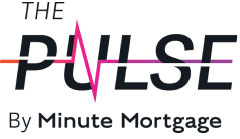How to Get a Mortgage if You’re Self Employed
There’s a lot of joy and satisfaction that comes from being successfully self employed. When that success leads to you buying a new home, though, self employment can make things a little tricky.
The key to getting approved for a home loan when you’re self employed is to plan well in advance—think two years, at least—and be meticulous with your income documentation during that time.
Here are four tips to help you secure a mortgage if you’re self employed.
Have detailed—very detailed—records of your income.
The reality is W-2 employees have a simpler task when it comes to proving their income and earning reliability to lenders. All, or most, of their salary is detailed on that one form.
Lenders will require more documentation from the self employed and they’ll likely want complete personal tax returns from the previous two full years. Additionally, lenders may require 1099s, profit and loss statements, bank statements, Schedule Cs and more, depending on your situation.
Bottom line: If you’ve got documents that help prove your income source is reliable, be ready to show them.
Keep a very low debt-to-income (DTI) ratio
A low DTI ratio is important for all mortgage applicants; not just the self employed. But there’s one big wrinkle the self employed can run into with DTI ratio: Most lenders do not differentiate between personal and business loans. Many lenders consider them all to be personal loans.
For example, maybe you’ve got a credit card you only use for business purposes, or a financed vehicle you use for work. While you consider the loan or line of credit for these to be business loans, most lenders will view them as personal, which can greatly affect your DTI ratio.
Keep deductions to a minimum for two years prior.
This best practice shows just how far ahead the self employed need to plan before they apply for a mortgage. If you’re self employed, you’re likely accustomed to writing off business expenses to lessen your tax burden. The catch with this is, lenders only look at your net income. So the more deductions you take, the less income it appears you’ve earned.
So while taking less deductions likely means paying more in taxes, it will help you prove your income reliability when it comes time to apply for a mortgage.
Make a bigger down payment.
Like with DTI, a bigger down payment makes loan approval easier for all applicants, but especially so for the self employed. A bigger down payment means less of a financed amount which makes lenders more inclined to approve your requested loan. The ideal down payment amount is at least 20%.
Got questions about applying for a mortgage if you’re self employed?
Get in touch with our team of home loan experts.


 4 Minute read
4 Minute read



